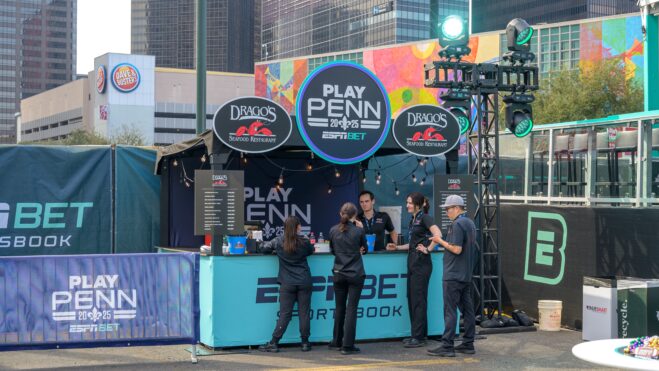MGM Resorts Purchases Tipico US Assets As Consolidation Run Continues
MGM Resorts is purchasing Tipico for an undisclosed sum, significantly expanding its online sports betting and gaming reach.
2 min

MGM Resorts International has announced the acquisition of Tipico US through its subsidiary, LeoVegas. This strategic purchase not only expands MGM’s digital footprint but also consolidates its position in the competitive online gaming and sports betting market.
The deal is multifaceted, encompassing Tipico’s online casino and sportsbook operations, as well as the underlying technology platforms that support them. This acquisition signifies a significant step for LeoVegas, which will now integrate Tipico’s management and technological prowess across various geographies, including the U.S., Colombia, and parts of Europe.
The financial terms of the MGM-Tipico deal have not been disclosed. However, it underscores MGM’s commitment to building a robust digital gaming presence in the U.S. By acquiring Tipico’s platform and technology, LeoVegas gains valuable control over its sportsbook product.
This will give LeoVegas greater flexibility and customization across its international markets, excluding those under the BetMGM joint venture with Entain. Additionally, integrating Tipico’s experienced staff adds valuable expertise to LeoVegas’ team.
A new Tipico
Tipico, which currently operates its sportsbook in Colorado, Iowa, New Jersey, and Ohio, is set to wind down these operations in the coming months. The cessation of services will begin with a halt to deposits on June 28, followed by a complete shutdown of its online casino in New Jersey.
“By controlling our own sportsbook technology, we ensure that we will deliver the world’s greatest iGaming experience to customers across all our markets and brands. Powering our strong brands with a competitive and innovative sports product will enable us to grow and strengthen our sportsbook offering in both new and existing markets. I look forward to welcoming the talented teams from Tipico’s U.S. business into the LeoVegas Group very soon.”
LeoVegas CEO Gustaf Hagman
This closure marks a pivotal shift in Tipico’s business strategy as it transitions under the MGM umbrella. The change will likely be finalized during the third quarter of the year, provided it survives regulatory scrutiny.
This transaction marks LeoVegas’s second major investment following its 2023 acquisition of game developer Push Gaming. The move is indicative of the company’s ambition to diversify and strengthen its portfolio. Furthermore, the acquisition will lead to the termination of LeoVegas’s existing agreement with Kambi for its international sportsbooks.
A tough nut to crack
The American sports betting landscape has proven to be a challenging arena for many operators. The market is burgeoning, yet establishing a strong presence has been more arduous than anticipated.
Several operators, including SportsBetting.com, PlayUp, Fubo Sportsbook, Unibet, SI Sportsbook, Betfred and theScore, have exited the market after failing to secure a substantial market share. This trend highlights the intense competition and the difficulty of achieving profitability in a saturated market.
WynnBet, another notable player backed by global gaming giant Wynn Resorts, has also scaled back its operations. Initially available in ten states, WynnBet has now retreated, maintaining its sports betting platform solely in New York.
This retrenchment reflects the broader challenges faced by sports betting operators in the U.S. The market is still relatively new and fragmented, with different regulations across states, creating a complex landscape that operators must navigate. This complexity requires significant resources in terms of legal compliance and market-specific strategies, which only the most robust companies can manage effectively.
Additionally, the market is crowded with established players and newcomers alike, all vying for a piece of the pie. Consumer loyalty and brand recognition play significant roles, and without a unique value proposition, new entrants struggle to disrupt the status quo.
Moreover, the cost of customer acquisition is high, and without a critical mass of users, sustaining operations becomes financially untenable. Technology also plays a crucial role in the competitiveness of the market. Operators must provide a seamless and engaging user experience across platforms, which requires continuous investment in software development and user interface design.





